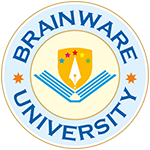
In our daily lives we often utter the word ‘stress’ under various situations, though we hardly know what causes us stress or how to manage stress effectively. Stress generally arises out of different internal and external influences that affect our mind, body, and behaviour deeply. In order to know effective stress management strategies, we must identify various sources of stress at first.

Sources of Stress
Stress is generally experienced from four basic sources-
Environmental: Various environmental stressors like extreme weather, noise, pollution, crowding, traffic, unsafe and inferior living conditions etc. can influence us with intense, competing adjustment requirements.
Social:We can experience multiple stressors resulting from the demands of our various social roles as parents, spouses, caregivers and employees. Some examples of social stressors include deadlines, financial problems, job interviews, presentations, differences, time and attention demands, loss of a loved one, divorce and co-parenting.
Physiological: Physiological stressors may be experienced in situations and circumstances affecting our body. Examples of physiological stressors include disease, aging, accidents rapid adolescence growth, menopause, delivery, lack of exercise, poor nutrition, sleep disorders etc.
Psychological: Our brain understands and perceives difficult,stressful, painful or unpleasant situations. Some life situations cause stress, but it is our thoughts and psychological process,which determine if they are a problem for us.
How to Manage Stress?
Before managing any kind of stress, we should know the exact causes behind the stress. Knowing the sources would be easier to manage stressors effectively.
Mindfulness: Mindfulness refers to the quality of being fully involvedin the present moment, without overthinking or analysing the past experience. Instead of worrying about the future or living in the past, practicingmindfulness meditation focuses on what is happening.Meditation cultivates awareness and helps in reducing stress, anxiety, depression and other negative emotionseffectively. Mindfulness is a potentially powerful strategy to reduce everyday stress causes such as, distraction, time pressure, agitation and interpersonal conflicts.
Progressive Muscle Relaxation: Progressive relaxation of muscles is another efficient and widely used stress relief strategy. It’s a great technique to reduce body tension overall. This involves a two-phase processes- tense and relax of the body muscles. Progressive muscle relaxation helps us to understand causes of tension and total relaxation ways.
Deep Breathing: Deep breathing is an effective self-relaxation technique. When we feel anxious, we tend to respire shallowly or even hold our breath. Breathing quickly limits your intake of oxygen and this adds additional stress to our body. Deep breathingreduces body tension and clears the mind and improves physical and mental well-being.The key to deep breathing is to breathe deeply from the abdomen and get as much air in the lungs as possible.
Thought Managing Techniques: Negative and scary thoughts always precede negative and scary emotions. The overall stress levels can be significantly reduced if negative thoughts can be controlled.





